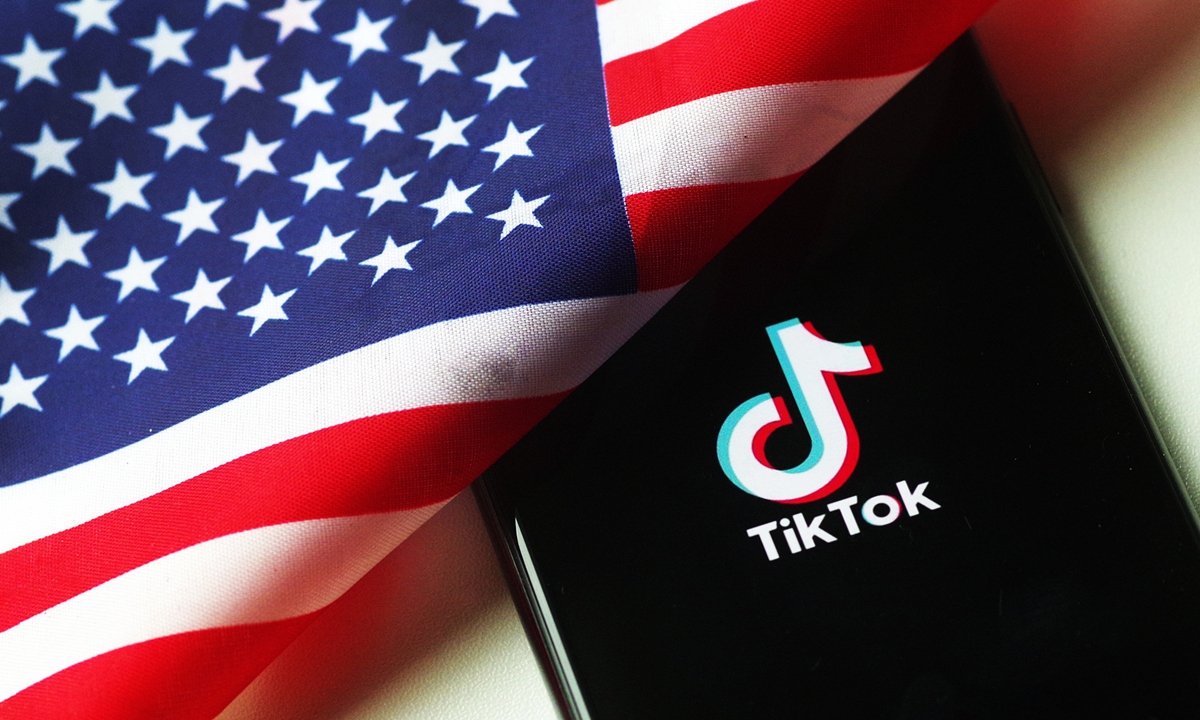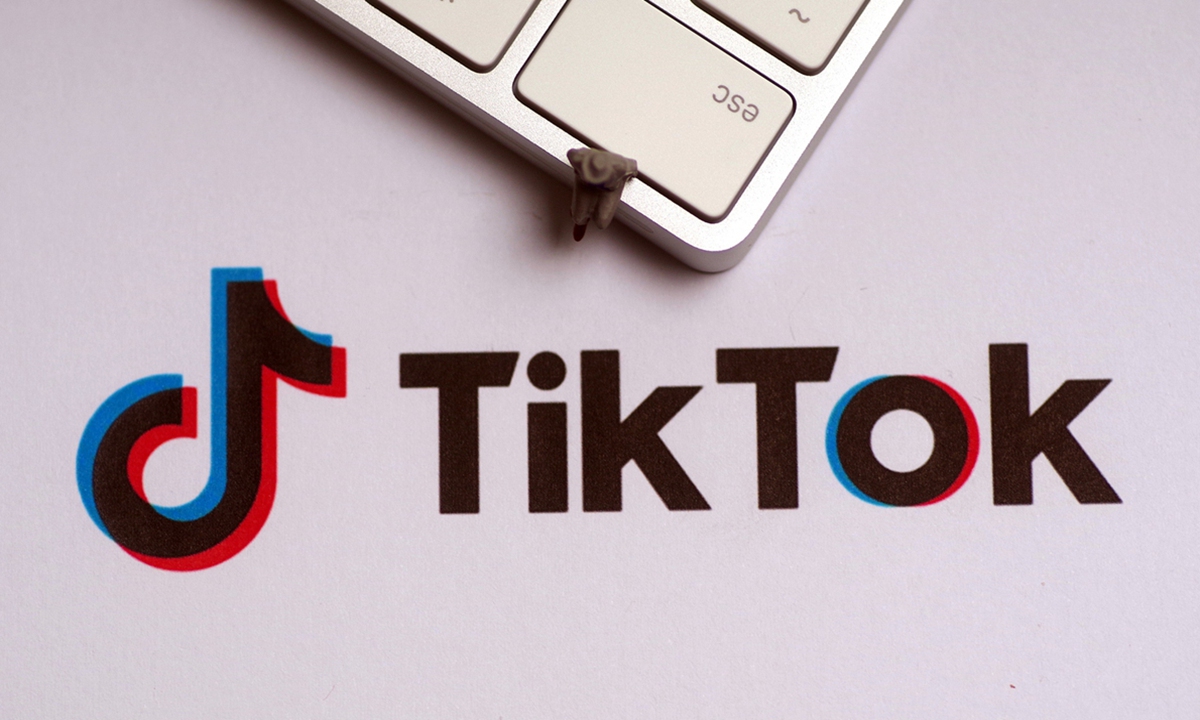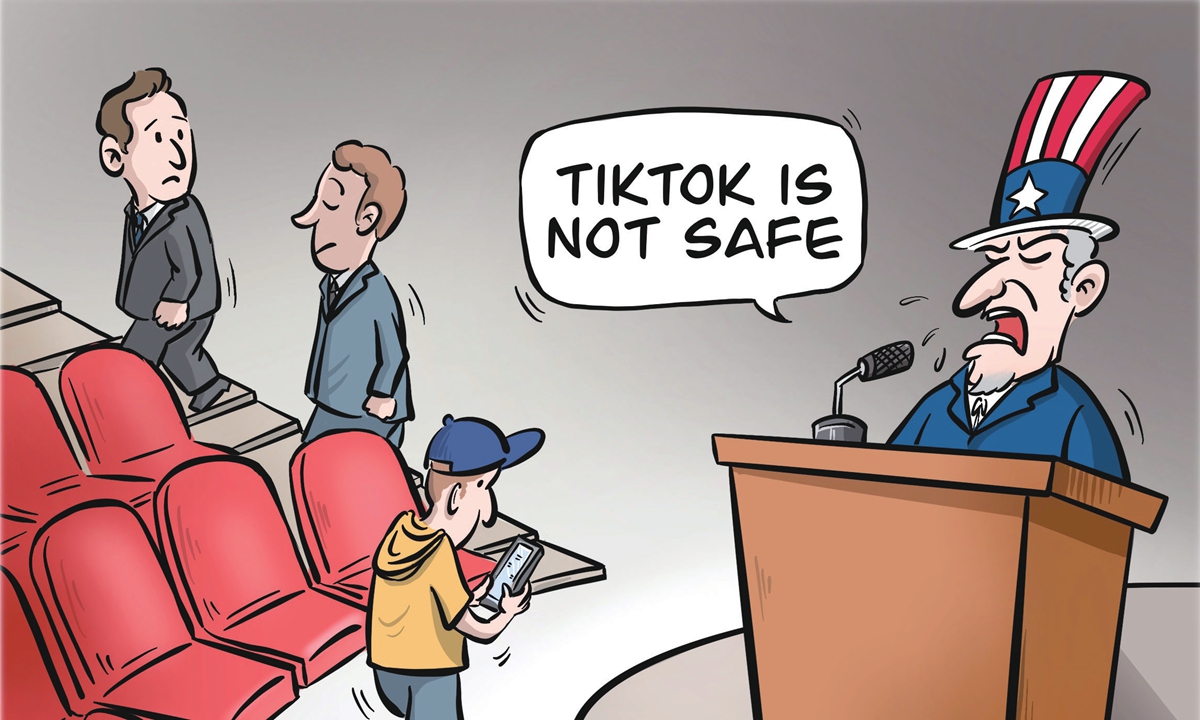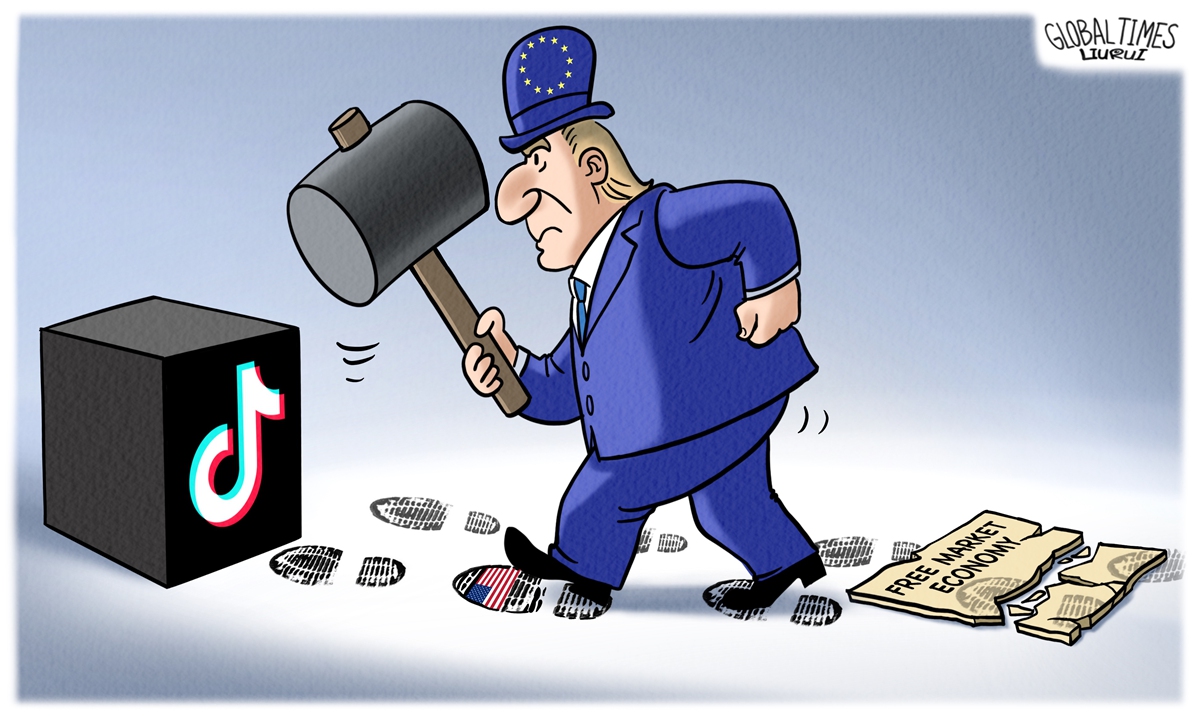Congressional threat of TikTok ban a living example of protectionism, pan-security: experts

TikTok US Photo: VCG
US lawmakers have introduced legislation that threatens to ban TikTok from app stores operated by Apple and Google unless the popular short video platform divests itself from ByteDance, its parent company, within about six months - a move that represents a latest crackdown on Chinese companies for so-called national security reasons, Chinese experts said.
The action came just about three months after a US judge blocked a ban on the use of TikTok in late November 2023, saying that it violated users' free speech rights. Experts said the move serves as another living example of how some US politicians use the stick of protectionism and pan-security for their own political purposes.
The action taken by the US lawmakers will jeopardize the rights of hundreds of millions of users and small businesses relying on the social media platform and undermine the confidence of Chinese investors in conducting business in the US, experts warned.
A bipartisan group of US lawmakers introduced legislation on Tuesday to give ByteDance about six months or 165 days to divest TikTok or face a US ban, seeking to tackle national security concerns about its Chinese ownership, Reuters reported.
Mike Gallagher, the Republican chair of the House of Representatives select China committee and Representative Raja Krishnamoorthi, the top Democrat, are among more than a dozen lawmakers introducing the measure, which is expected to see an initial vote on Thursday, the report said.
In response, a TikTok spokesperson told the Global Times on Wednesday that "this bill is an outright ban of TikTok, no matter how much the authors try to disguise it. This legislation will trample on the First Amendment rights of 170 million Americans and deprive 5 million small businesses of a platform they rely on to grow and create jobs."
The bill came just a few months after a US district judge issued a preliminary injunction last November to block Montana's first-of-its kind state ban on the use of the app from taking effect on January 1, 2024, stating that the ban "violates the Constitution in more ways than one" and "oversteps state power."
TikTok has faced increasing pressure and scrutiny in the US over alleged security concerns and accusations of a link to the Chinese government. Despite the company's repeated assurances that it has never shared data with the Chinese government and would not do so if asked, the scrutiny persists.
Chinese experts said that the latest move by the US lawmakers amid the US primary elections is another "political gala" targeting China-related companies in an attempt to arouse public concern over "national security" issues.
"What lies behind the show is the country's growing protectionism and pan-security, driven by political motivations," Gao Lingyun, an expert at the Chinese Academy of Social Sciences, told the Global Times on Wednesday, noting that this will add more uncertainty to the already challenging economic relations between China and the US.
It also exemplifies the fact that some US politicians have put their political interests above the public's interests, which include the massive number of users and enterprises relying on the social media platform, Gao said.
The bill came just a month after the US President Joe Biden officially joined TikTok on February 11, becoming one of the more than 1 billion users of the short video platform. US media outlet The Hill said that "the Biden campaign launch on the app could mark an effort to win over younger voters."
About 170 million Americans are using TikTok, more than half of the total US population. TikTok has become a main source of news and information for Gen Z in the US (those born between 1996 and 2010). Even in the face of negative publicity, TikTok's young users continue to experience explosive growth, proving that the app meets social needs and is a free choice on the market.
TikTok is not just a Chinese company investing and operating in the US but an important platform for the US to catch up to the global trend of digitalization, experts said. The platform has created a lot of jobs and business opportunities in the US, Zhou Mi, a senior research fellow at the Chinese Academy of International Trade and Economic Cooperation, told the Global Times on Wednesday.
"The moves by the US politicians may harm the rights of many US consumers from accessing the popular app and have a negative impact on the market environment in the country," Zhou said.



